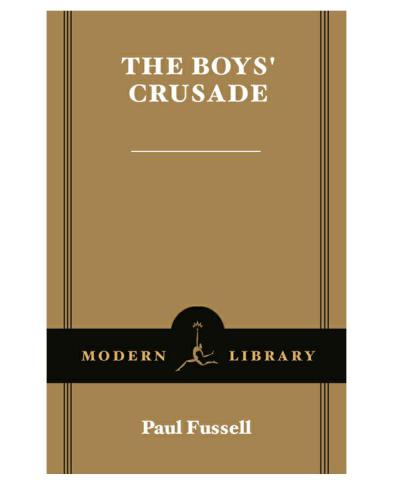
The Boys' Crusade
The American Infantry in Northwestern Europe, 1944-1945
کتاب های مرتبط
- اطلاعات
- نقد و بررسی
- دیدگاه کاربران
نقد و بررسی

July 14, 2003
This short study of the U. S. Army's most burdened branch in the final campaign against Germany does not represent its National Book Award–winning author at his highest level. It focuses on the 17-, 18-, and 19-year-olds who were the backbone of the infantry. They were also frequently thrust into combat after no more than four months' training, led by officers as green as themselves; Fussell himself was one of them. If wounded, they were returned to some other unit through the infamous Replacement Depot system, and altogether not treated much better than the trench fodder of WWI. Thorough research has not prevented some questionable pieces of historiography, such as leaving out the resistance the American army eventually generated in the Battle of the Bulge. Fussell also tends toward space-consuming jabs at rival schools of interpretations and even journalists as distinguished as Ernie Pyle. The focus bounces around, with mini-essays covering such non-infantry affairs as the Allied deception operation for D-Day, at the expense of material on the infantry as other than victim. For a minihistory or minibiography of the same subject, readers should stick with Stephen Ambrose's Citizen Soldiers.

May 1, 2003
World War II from the perspective of U.S. infantrymen-with Fussell stressing how young they were.
Copyright 2003 Library Journal, LLC Used with permission.

August 1, 2003
This is an unsentimental crystallization of the American infantryman's experience in World War II from D-Day forward, of which Fussell knows something, as his memoir " Doing Battle" (1996) attests. Fussell finds his experience echoed in that of another memoirist, Robert Kotlowitz, and quotes copiously from " Before Their Time" (1997) to illustrate the training of a soldier; frictions with the British and the French; and being ordered into combat by mulish or inept officers. He then describes the chain taking the dead and wounded back and the replacements up, castigating the ironic chasm between its horrors and the popular penchant to remember the American soldier's experience as a righteous crusade. Ultimately, with the overrunning of the concentration camps, he was rightly exalted as a sacrificial liberator, but few footsloggers at the time felt that way--as Fussell reminds us with trenchancy and intolerance for cant.(Reprinted with permission of Booklist, copyright 2003, American Library Association.)

























دیدگاه کاربران